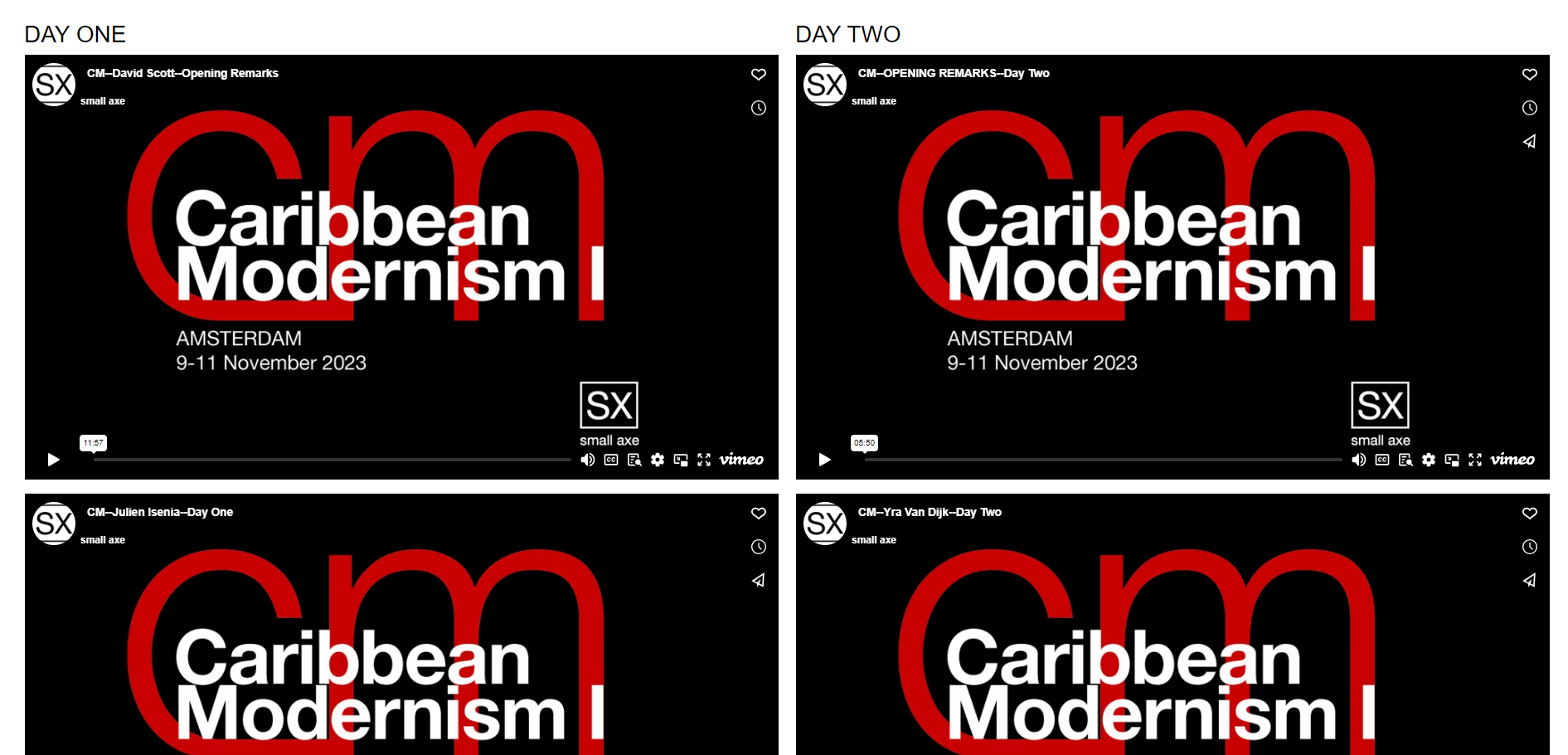


Practical Information:
November 9-10, hosted by Framer Framed
Oranje-Vrijstaatkade 71, 1093KS Amsterdam
The symposium will be recorded and made available online. Small Axe provides a livestream of the event on their Instagram page.

Arguably, across a range of expression and identity, artistic as well as intellectual, modernism has been a shaping force in the twentieth-century Caribbean. If European high modernism partly nourished itself on its imperial connection (primitivism), so also did the vernacular modernisms of the colonial world find their voices by appropriating, indigenizing, creolizing, transforming the forms and languages of modernism. Founded as it was, as a geopolitical region, within modern structures of power—colonial slavery and indenture—the problem of modernity is native to the Caribbean. Not surprisingly, therefore, across the regional and diasporic Caribbean modernism contributed to the modes of radical artistic and intellectual response to colonial domination, dispossession, and oppression, providing some of the idioms and styles and infrastructures through which the politics and poetics and aesthetics of self-determination was articulated. In the last three decades or so, however, with the waning of postcolonial sovereignty and the rise of globalization, there is reason to doubt that modernism continues to be the subversive force that it was for so long taken to be. This is the arena of our project. Our aim is to understand the role of visual, literary, and intellectual modernism in the twentieth-century Caribbean, regional and diasporic, and as a corollary, to explore whether or to what extent modernism’s heretical energies continue to be a significant point of reference.